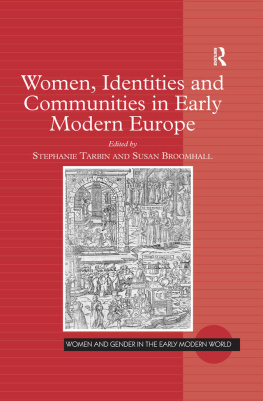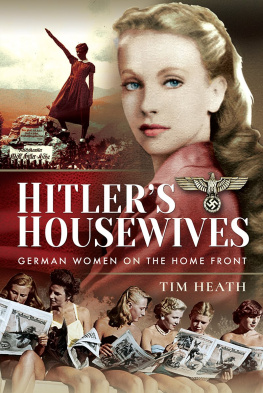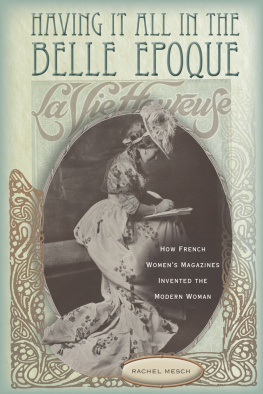Adam C. Stanley - Modernizing Tradition: Gender and Consumerism in Interwar France and Germany
Here you can read online Adam C. Stanley - Modernizing Tradition: Gender and Consumerism in Interwar France and Germany full text of the book (entire story) in english for free. Download pdf and epub, get meaning, cover and reviews about this ebook. year: 2008, publisher: LSU Press, genre: Romance novel. Description of the work, (preface) as well as reviews are available. Best literature library LitArk.com created for fans of good reading and offers a wide selection of genres:
Romance novel
Science fiction
Adventure
Detective
Science
History
Home and family
Prose
Art
Politics
Computer
Non-fiction
Religion
Business
Children
Humor
Choose a favorite category and find really read worthwhile books. Enjoy immersion in the world of imagination, feel the emotions of the characters or learn something new for yourself, make an fascinating discovery.

- Book:Modernizing Tradition: Gender and Consumerism in Interwar France and Germany
- Author:
- Publisher:LSU Press
- Genre:
- Year:2008
- Rating:3 / 5
- Favourites:Add to favourites
- Your mark:
Modernizing Tradition: Gender and Consumerism in Interwar France and Germany: summary, description and annotation
We offer to read an annotation, description, summary or preface (depends on what the author of the book "Modernizing Tradition: Gender and Consumerism in Interwar France and Germany" wrote himself). If you haven't found the necessary information about the book — write in the comments, we will try to find it.
In the turbulent decades after World War I, both France and Germany sought to return to an idealized, prewar past. Many people believed they could recapture a sense of order and stability by reinstituting traditional gender roles, which the war had thrown off balance. While French and German women necessarily filled mens roles in factories and other jobs during the war, those who continued to lead active working lives after World War I risked being called modern women. Far from a compliment, this derogatory label encompassed everything society found threatening about womens new place in public life: smoking, working women who preferred independence and sexual freedom to a traditional role in the home. Society felt threatened by the image of the modern woman, yet also realized that conceptions of femininity needed to accommodate the cultural changes brought about by the Great War.
In Modernizing Tradition, Adam C. Stanley explores how interwar French and German popular culture used commercial images to redefine femininity in a way that granted women some access to modern life without encouraging the assertion of female independence. Examining advertisements, articles, and cartoons, as well as department store publicity materials from the popular press of each nation, Stanley reveals how the media attempted to convince women that--with the help of newly available consumer goods such as washing machines, refrigerators, and vacuum cleaners--being a mother or a housewife could be empowering, even liberating. A life devoted to the home, these images promised, need not be an unmitigated return to old-fashioned tradition but could offer a rewarding lifestyle based on the wonders and benefits of modern technology. Stanley shows that the media carefully limited womens association with modernity to those activities that reinforced womens traditional roles or highlighted their continued dependence on masculine guidance, expertise, and authority.
In this cross-national study, Stanley brings into sharp relief issues of gender and consumerism and reveals that, despite the larger political differences between France and Germany, gender ideals in the two countries remained virtually identical between the world wars. That these concepts of gender stayed static over the course of two decades--years when nearly every other aspect of society and culture seemed to be in constant flux--attests to their extraordinary power as a force in French and German society.
Adam C. Stanley: author's other books
Who wrote Modernizing Tradition: Gender and Consumerism in Interwar France and Germany? Find out the surname, the name of the author of the book and a list of all author's works by series.










